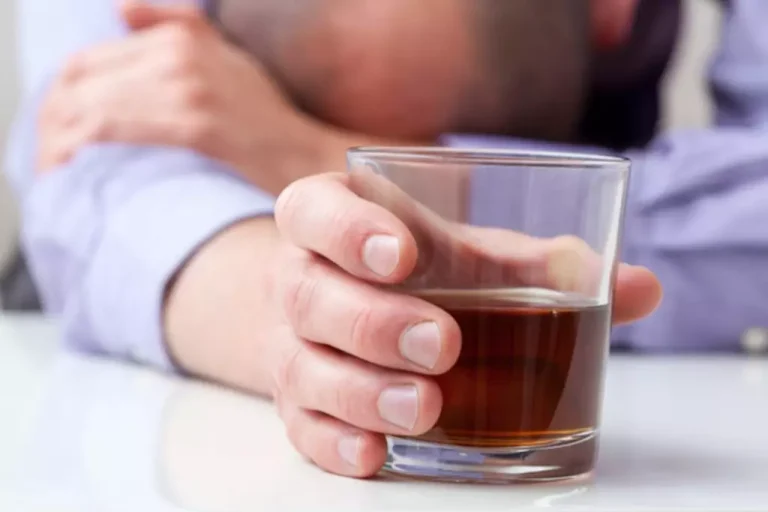07 set How To Stop Chest Pain After Drinking Alcohol
Some people attain their goal only to find that old habits crop up again later. Cutting back on the amount or frequency of drinking can reduce these risks. The 37 million binge drinkers had about one binge per week and consumed an average of seven drinks per episode. “Just get a sparkling water, put a lime in it, and have fun,” he says. There are many healthy habits you can replace drinking alcohol with, whether it’s drinking a healthier option, such as sparkling water, or doing something different altogether. Fiellin says it’s important to note that there is the same amount of alcohol in a 12-ounce bottle of beer, a 5-ounce glass of wine, and a 1.5 ounce shot of distilled spirits.
Tips for quitting alcohol

These effects can increase your risk of various types of cancer, including mouth, throat, esophagus, breast, liver, and colon cancer. This occurs when the level of alcohol in your bloodstream is so high that it creates a life-threatening situation. Drinking too much in a short period of time can reduce your heart rate, breathing, and body temperature. Seizures, loss of consciousness, and even death can occur.
Think through the situations when you tend to reach for a drink—and plan a new approach.
- The service is free and available 24 hours a day year-round.
- It’s not uncommon for young adults to encourage one another to drink in excess, mix their drinks, or add rounds of shots.
- ” These lapses in memory only add to the overall hangover and sense of dread you experience the next day.
There are many factors that influence our relationship with alcohol, including social factors, genetic predispositions, mental health conditions, and beyond. There are many scenarios in which a few drinks with your friends can quickly lead to excessive alcohol consumption, which has both short- and long-term effects on your physical and mental health. Learning how to stop binge drinking is possible, and may involve reshaping your relationship with alcohol by making behavioral changes, setting goals, and seeking effective treatment.
Impact on your safety
Across age groups, people aged 45 to 64 have the highest alcohol death rate, followed by 65+. Death rates in males are more than double that of females and people who reside in rural areas have death rates higher than those who live in urban areas (Figure 2). When those muscles get relaxed, acid from your stomach can splash up into your throat and cause heartburn.
- The 2015 study results showed Americans were consuming about seven drinks during each episode of binge drinking.
- “Signs of kidney damage include foamy urine, urinating more or less often than usual, tiredness, weight loss, itchy or dry skin, and achy muscles,” says Dr. Otulana.
- Alcohol deaths in 2022 were highest among people aged 45 to 64, males, people living in rural areas, and AIAN people.
- You may begin to binge drink more often, the days you abstain between sessions becoming fewer.
- Crystal Raypole has previously worked as a writer and editor for GoodTherapy.

Regularly binge drinking can contribute to long-term health problems and impact things like your mood, memory, and mental health. In extreme cases, overdosing on alcohol can lead you to stop breathing or stop your heart and can make you choke on your vomit. Binge drinking can lead to changes in your behaviour, like misjudging risky situations or losing self-control.
Setting Healthy Boundaries in Relationships

“There are also a number of factors that can affect the extent and speed of organ damage, such as genetics, drinking patterns, and a person’s overall health.” “Binge drinking has been linked to an increased risk of heart attacks,” says Benjamin Ravaee, MD, a cardiologist with Delray Medical Center in Palm Beach County, Florida. Drinking in excess over long periods of time can raise your blood pressure, which can increase your risk for heart attack and stroke, according to the British Heart Foundation.
- Will quitting drinking solve all of your problems, in health and in life?
- If you do have an occasional drink, taking an antacid (like Tums) or proton pump inhibitor (like Tagamet or Pepcid AC) should also help neutralize stomach acid and help you feel better, per the Mayo Clinic.
- In particular, she’s committed to helping decrease stigma around mental health issues.
- If you feel like your relationship with alcohol needs an overhaul, you’ve got plenty of company.
- About 90 percent of the alcohol in your blood is broken down by the liver.

Be careful to follow these guidelines when consuming alcohol, since larger mugs of beer, heavy pours of wine, and mixed drinks might actually be more than one drink. But most people have a hard time discerning when they’ve gone beyond moderate drinking and should consider cutting back, according to Koob. This is sometimes called the “5+/4+ rule” (5-plus/4-plus rule) of binge drinking. For example, the connection between alcohol and depression is well established. It leaves around 60% of people in alcohol treatment also needing mental health treatment. Heavy sessions of drinking are sometimes called a ‘binge’.
Bingeing has both short- and long-term risks, including alcohol poisoning, increased risk of a stroke or heart attack, and damage to the heart, brain, and liver. Rises in alcohol deaths may be attributed to a variety of factors including, in part, increases in drinking and low treatment rates. Alcohol consumption and some indicators of binge drinking have been on the rise in recent years, particularly among some demographic groups. Excessive alcohol consumption is tied to the development of alcohol-related diseases, which can be fatal. A variety of factors may have contributed to increases in drinking including a growing social acceptability of alcohol and loosening of alcohol policies at a state level. Other factors, such as increased stressors due to the pandemic and other issues may have increased drinking behaviors.
Are You Feeling Suicidal?
This plan can be for one night, a certain length of time, or a few days every week, but it’s important to try and stick to it in order to accomplish your goal. While fear and shame lead many to underreport alcohol use, providers can foster honesty by creating a safe space, asking specific questions, how to stop binge drinking and focusing on health impacts. Honest disclosure is vital for optimal care, and even small reductions in alcohol intake can significantly improve health outcomes. Drinking in moderation is considered to be consuming two drinks or less in a day for men and one drink or less in a day for women.


No Comments